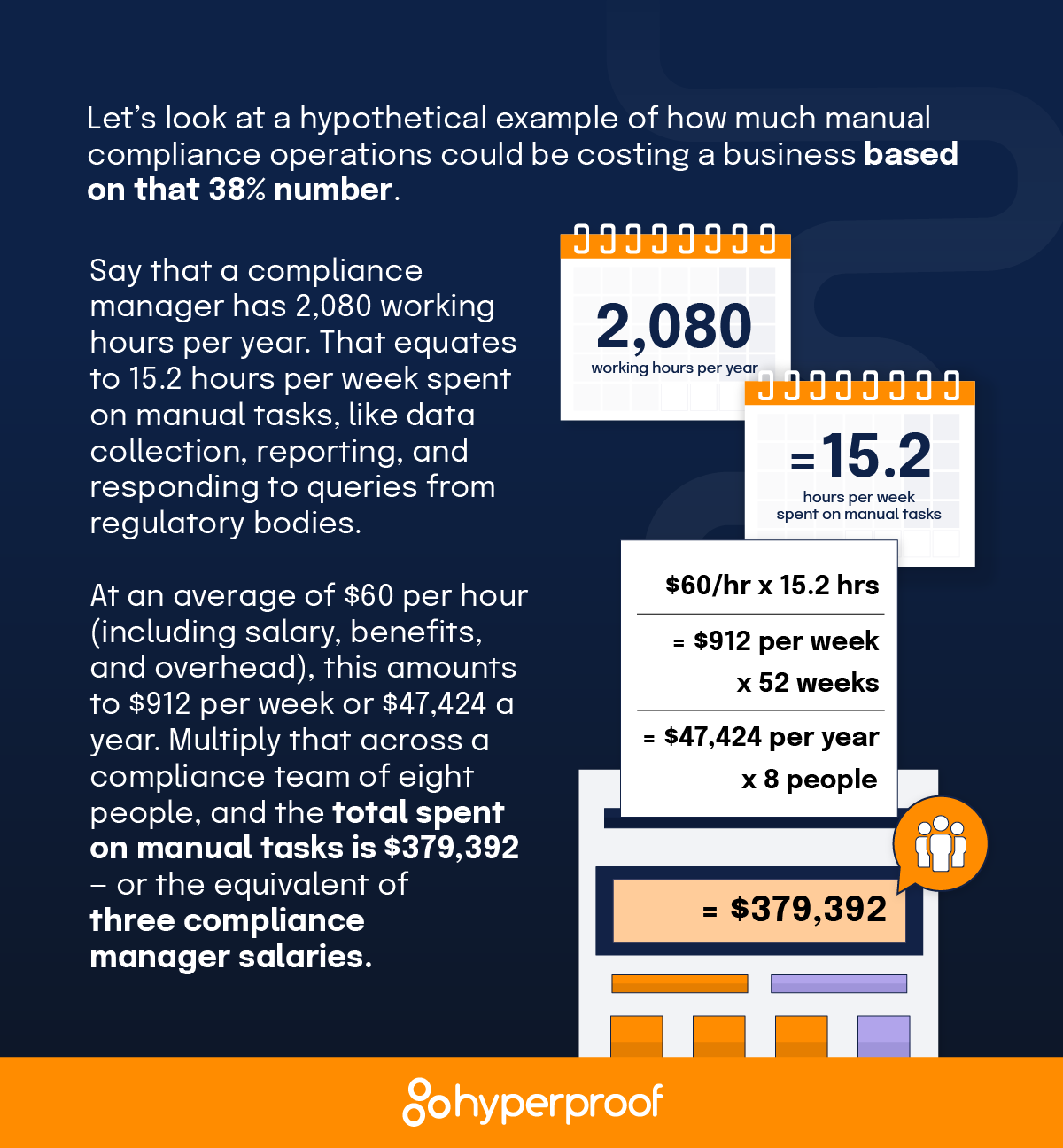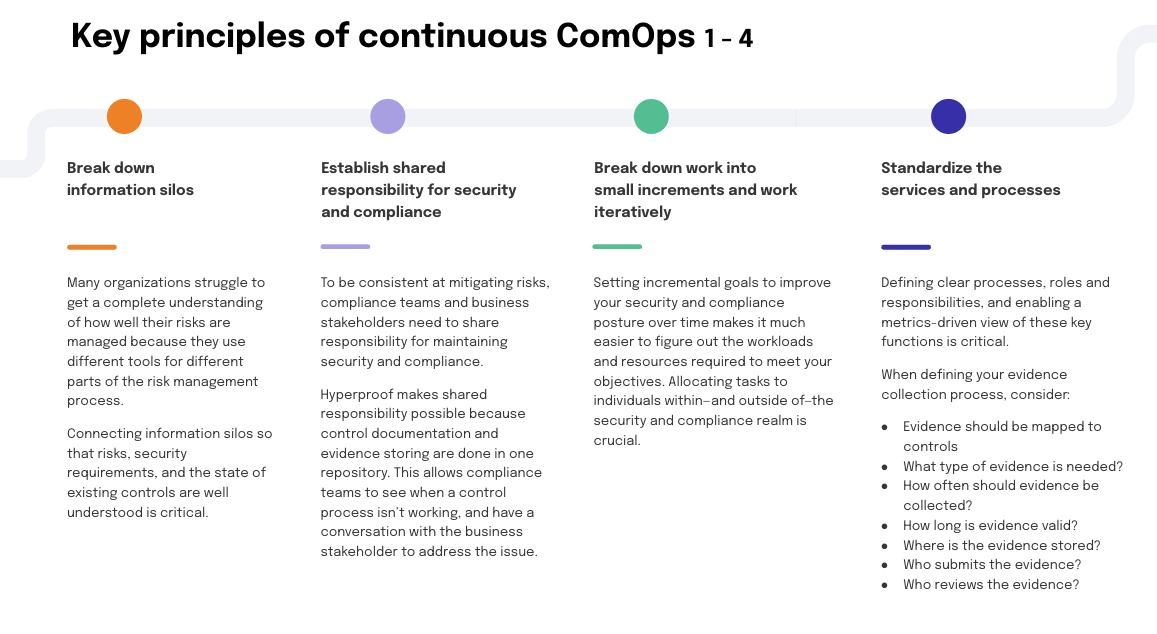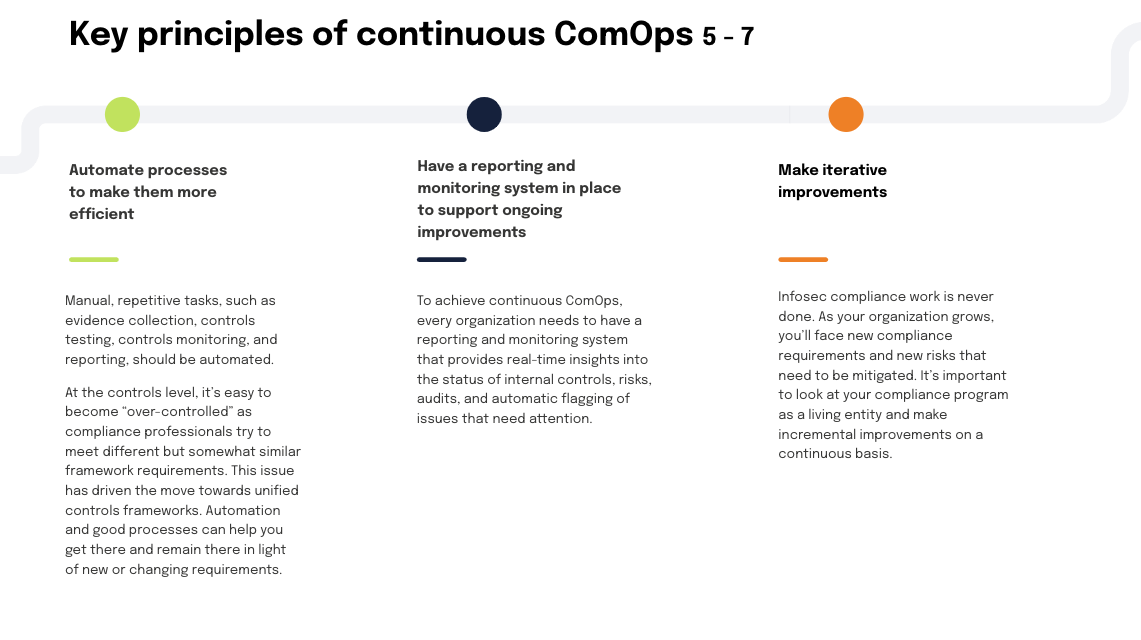Continuous ComOps equals efficiency
Organizations that don't practice continuous ComOps are often not efficient. Instead, they're more likely to duplicate efforts as they go through one audit after another, pestering employees for the same piece of evidence over and over. They're also more likely to end up with duplicate data, increasing the chance of using wrong or outdated data.
Reducing cost and overhead with ComOps
Referring back to Hyperproof's initial survey, the number one reason why organizations don't adopt continuous ComOps is because they assume the cost to switch from audit-first is too high. Furthermore, they're concerned that the switch would require too many resources and too much time.
According to Hyperproof’s 2023 IT Compliance Benchmark Report, the average compliance professional reported spending 38% of their time at work on manual tasks.[1] The infographic below provides a hypothetical example of just how much manual compliance operations could cost a business based on that 38 percent.

Note
Not factored into this equation are the additional cost savings continuous ComOps offers—centralized data, better insight into risk, and reducing the chances of human error.
Hyperproof's 2023 IT Compliance Benchmark Report found that 61% of organizations that characterized their compliance operations approach as "ad-hoc" experienced a data breach. The average amount lost on those data breaches ranged between $1M-5M. In contrast, only 30% of organizations with an integrated compliance operations approach experienced breaches.
The potential to save millions per year in data breach costs (including security team time to clean up, report, and address any investigations) and potential fines, on top of the savings on manual processes, quickly begins to make the case for investing in continuous ComOps.
Keys to continuous ComOps


Using Hyperproof for continuous ComOps
Hyperproof allows your organization to manage its continuous ComOps all in one place. With Hyperproof, you can:
Streamline processes and procedures—such as the ability to nudge stakeholders for evidence—and alerts for risks, controls, or vulnerabilities that need attention
Use automated evidence collection to ensure proof is up-to-date
Reuse controls across multiple frameworks, saving you the hassle of starting from scratch each time you start a new framework
Facilitate internal assessments as well as internal and external audits
Manage risks in one place
Monitor controls with automated testing
Use issues to track remediation tasks
Understand your organization's compliance posture at a glance with dashboards and reporting
Tip
Getting started with continuous ComOps is easy! Check out our step-by-step workflow.
[1] Hyperproof surveyed over 1,010 security, compliance, and risk management professionals throughout the US and UK to understand pain points, IT risk and compliance budgets, staffing, risk management best practices, and more.